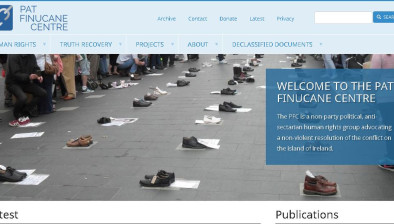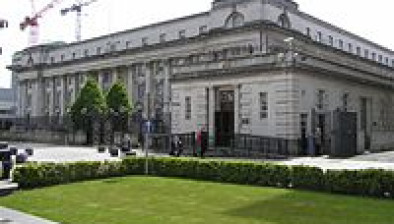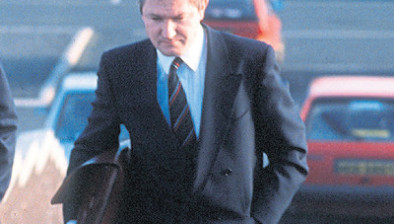UKSC: No investigation into Pat Finucane’s death so far has been Article 2 compliant
The widow of murdered Belfast solicitor Pat Finucane has been granted a declaration that the state has failed to deliver an Article 2 compliant investigation into the death of her husband, who was shot and killed by loyalist paramilitaries in collusion with the UK security forces.

About this case:
- Citation:[2019] UKSC 7
- Judgment:
- Court:UK Supreme Court
- Judge:Lord Kerr
In a unanimous judgment, Lord Kerr of Tonaghmore found that the undertaking to carry out a public inquiry was clear and unambiguous, and that Mrs Finucane had a legitimate expectation that this would be complied with. However, he said that the law was clear that government may resile from that undertaking if “macro-political” issues of policy supervene, and accordingly dismissed this part of the appeal.
On the second issue, of whether the state had failed to meet its procedural obligations under Article 2 ECHR, Lord Kerr said that the many shortcomings of Desmond de Silva’s review attested to the fact that it was not an Article 2 compliant inquiry, and that an Article 2 compliant inquiry into the death of Patrick Finucane had not yet taken place.
Grounds of Appeal
Delivering the judgment of the Court, Lord Kerr explained that two main issues arose:
- Whether the government should be held to the promise that had been made that a public inquiry into the death of Mr Finucane would take place;
- Whether the failure to establish a public inquiry meeting the state’s procedural obligations under Article 2 of the European Convention on Human Rights violated Mrs Finucane’s rights under Article 2 ECHR and section 6 of the Human Rights Act 1998. This argument was made in support of the claim that the government should be held to its promise of a public inquiry.
Legitimate expectation of a public inquiry
On the first question, Mrs Finucane claimed she had a legitimate expectation that a public inquiry into her husband’s death would be held, based on the unequivocal assurance given to her by the then Secretary of State for NI and his statement to the Commons in September 2004. It was submitted that the government had to show there were valid grounds for reneging on the promise made to Mrs Finucane, but that it had failed to do so. It was argued that the decision not to hold the public inquiry was a sham, that the outcome had been determined prior to the “entirely cosmetic” process of consultation and discussions, and the suggestion that the decision had been taken in the public interest was spurious.
It was argued on behalf of the Secretary of State for Northern Ireland that it was “incumbent on Mrs Finucane to show that she had suffered a detriment”; however, Lord Kerr rejected this argument because the question of detriment could only arise in the context of a substantive legitimate expectation. In this case, the promise did not partake of a substantive benefit to a limited class of individuals; it was a policy statement about procedure, made not just to Mrs Finucane but to the world at large.
The Secretary of State also submitted that “the statements made by the government were not sufficiently unconditional and devoid of qualification to give rise to a legitimate expectation”. Lord Kerr explained that the High Court and the Court of Appeal rejected that argument, and said that they were right to do so.
Lord Kerr said that the Supreme Court was unanimous in finding that the undertaking given to Mrs Finucane was “clear and unambiguous”, it was without doubt sufficient to create a legitimate expectation on her part that a public inquiry into her husband’s death would be held.
However, Lord Kerr said that the law was clear that government may resile from that undertaking, given in the field of ‘macro-political’ issues of policy where newly encountered or freshly considered policy matters supervene (R v North and East Devon Health Authority, Ex p Coughlan [2001] QB 21 and Nadarajah v Secretary of State for the Home Department [2005] EWCA Civ 1363 considered). Lord Kerr said, “[w]here political issues overtake a promise or undertaking given by government, and where contemporary considerations impel a different course, provided a bona fide decision is taken on genuine policy grounds not to adhere to the original undertaking, it will be difficult for a person who holds a legitimate expectation to enforce compliance with it”.
Stating that the findings in the High Court and court of Appeal in this regard could not be faulted, Lord Kerr also said there was no sustainable evidence that the decision-making process was a sham or that the outcome was predetermined. Lord Kerr said that the Prime Minister had played an important, if not controlling, role in the discussions which led to Sir Desmond de Silva’s review, and that he was prepared to disregard the strongly worded recommendation of Sir Jeremy Heywood (that Mr Finucane’s death “was a dark moment in the country’s history - far worse than anything that was alleged in Iraq/Afghan” and that he could not “think of any argument to defend not having a proper inquiry”). Lord Kerr said that the part played by the Prime Minister, and the influence he exerted, were matters for his political judgment. As such, Lord Kerr concluded that this part of Mrs Finucane’s appeal should fail.
Procedural obligations under Article 2 ECHR
On the second question, the Supreme Court unanimously held that an Article 2 investigation had never been held.
Lord Kerr explained that it was well-settled that Article 2 ECHR gave rise to ‘two species of obligation on the part of the state; one substantive, the other procedural’. Lord Kerr said the nature of the state’s obligations were described by Lord Phillips in In re McCaughey’s application for judicial review [2012] 1 AC 725:
“article 2 by implication [gives] rise not merely to a substantive obligation on the state not to kill people but, where there was an issue as to whether the state had broken this obligation, a procedural obligation on the state to carry out an effective official investigation into the circumstances of the deaths.”
Lord Kerr said the ECtHR has held that a deficiency in investigation will give rise to a breach of the procedural obligation if it is such as to undermine its capability of establishing the facts surrounding the killing or the liability of the persons responsible.
The Supreme Court considered that all of the inquiries into Mr Finucane’s death, including Sir Desmond de Silva’s review did not have the capability of establishing all the salient facts surrounding Mr Finucane’s killing, or the liability of those who were responsible for his death. Being capable of identifying those responsible, must involve having the means to identify those implicated in the death. It should also include the will and the opportunity to expose them. The important issue in this case was whether Sir Desmond de Silva’s review had these critical attributes.
Lord Kerr held that much of what Sir Desmond said in his conclusions was qualified, or expressed in terms of generality. For instance, he said that the RUC, the security services, and the secret intelligence service failed to warn Patrick Finucane of known and imminent threats to his life in 1981 and 1985. Those officers who were in a position to give that warning and whose plain duty it was to do so were not identified, and the circumstances in which they failed in their duty are not explained.
In deciding whether an Article 2 inquiry into Mr Finucane’s death has taken place, Lord Kerr said it was important to start with a clear understanding of the limits of Sir Desmond de Silva’s review – his was not an in-depth proving investigation with all the tools that would normally be available to someone tasked with uncovering the truth of what had actually happened.
Lord Kerr explained that Sir Desmond did not have the power to compel the attendance of witnesses; those who did meet him were not subject to testing by way of challenging probes as to the veracity and accuracy of their evidence; a potentially critical witness was excused attendance for questioning by Sir Desmond.
All of these features, Lord Kerr said, attested to the shortcomings of Sir Desmond’s review as an effective Article 2 compliant inquiry. While noting that this was not to to criticise the thoroughness or rigour of Sir Desmond’s review, Lord Kerr said that the very care with which he carried out his review, and the tentative and qualified way in which he felt it necessary to express many of his critical findings, bore witness to the inability of his review to deliver an Article 2 compliant inquiry.
The Supreme Court was therefore unanimous in its conclusion that a declaration should be made that an Article 2 compliant inquiry into the death of Patrick Finucane, had not yet taken place.
Lord Kerr explained that it did not follow that a public inquiry of the type sought by Geraldine Finucane must be ordered. Lord Kerr said it would be for the state to decide “in light of the incapacity of Sir Desmond de Silva’s review and the inquiries which preceded it to meet the procedural requirement of Article 2, what form of investigation, if indeed any is now feasible, is required in order to meet that requirement”.
- by Seosamh Gráinséir for Irish Legal News










